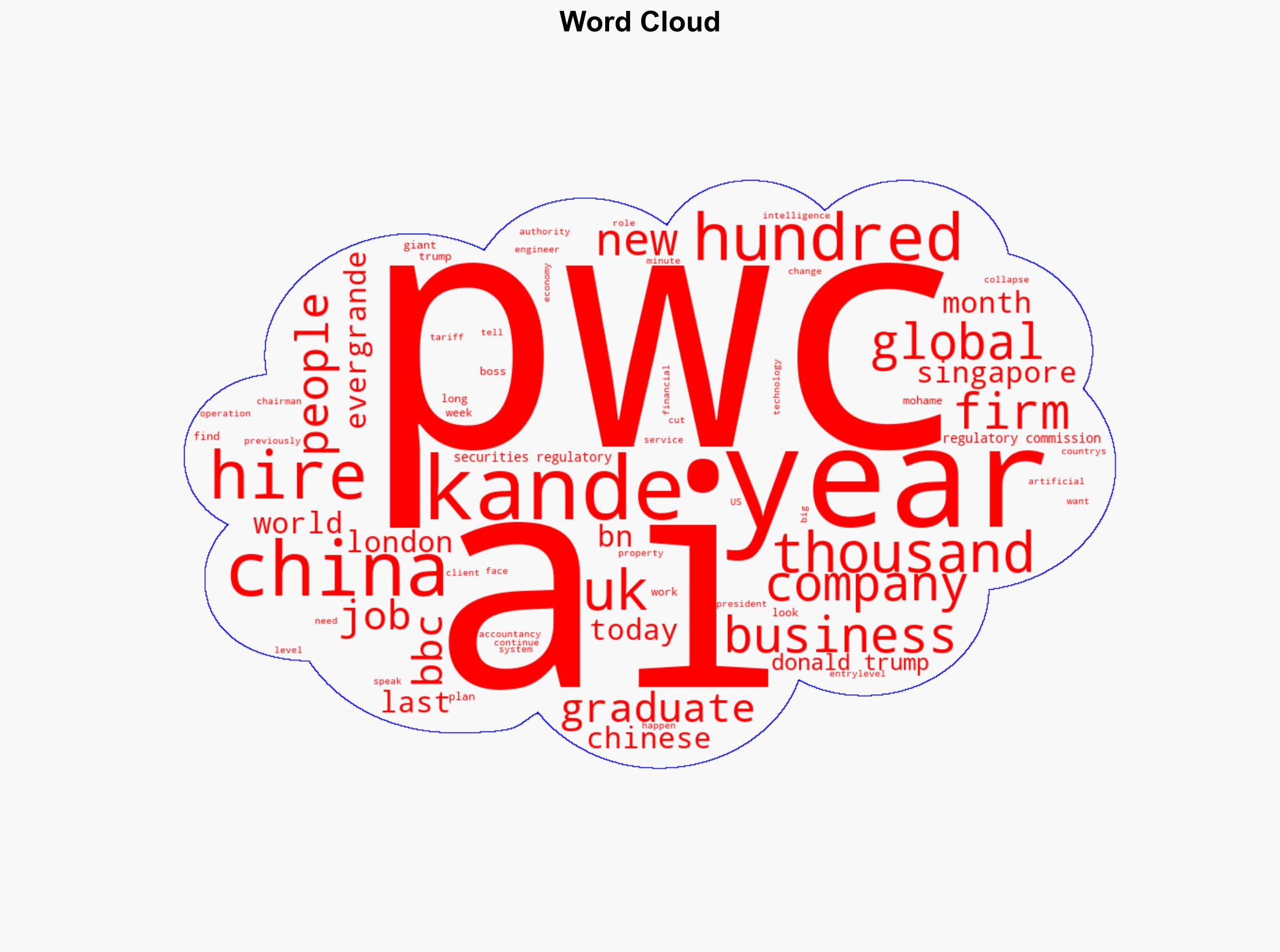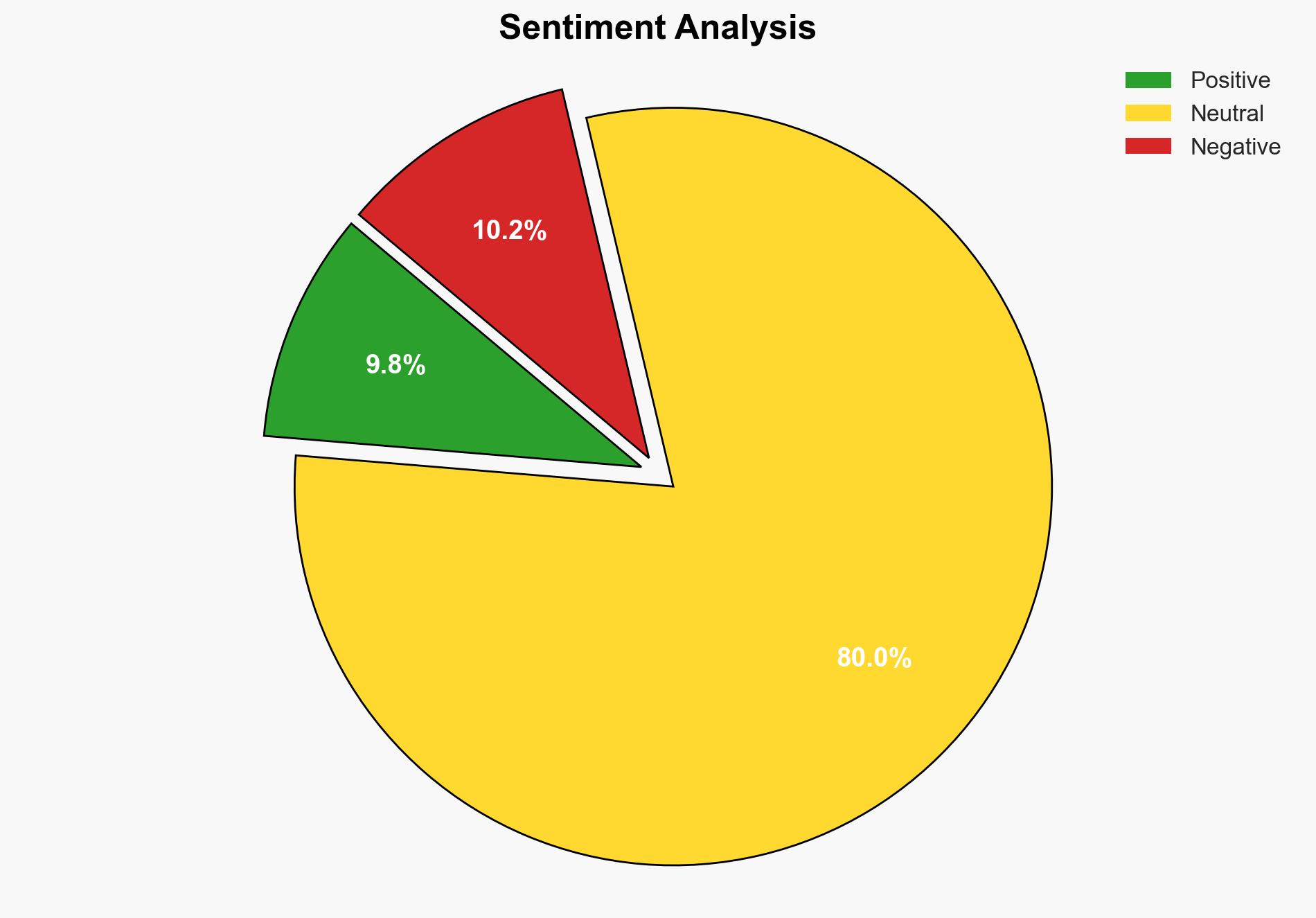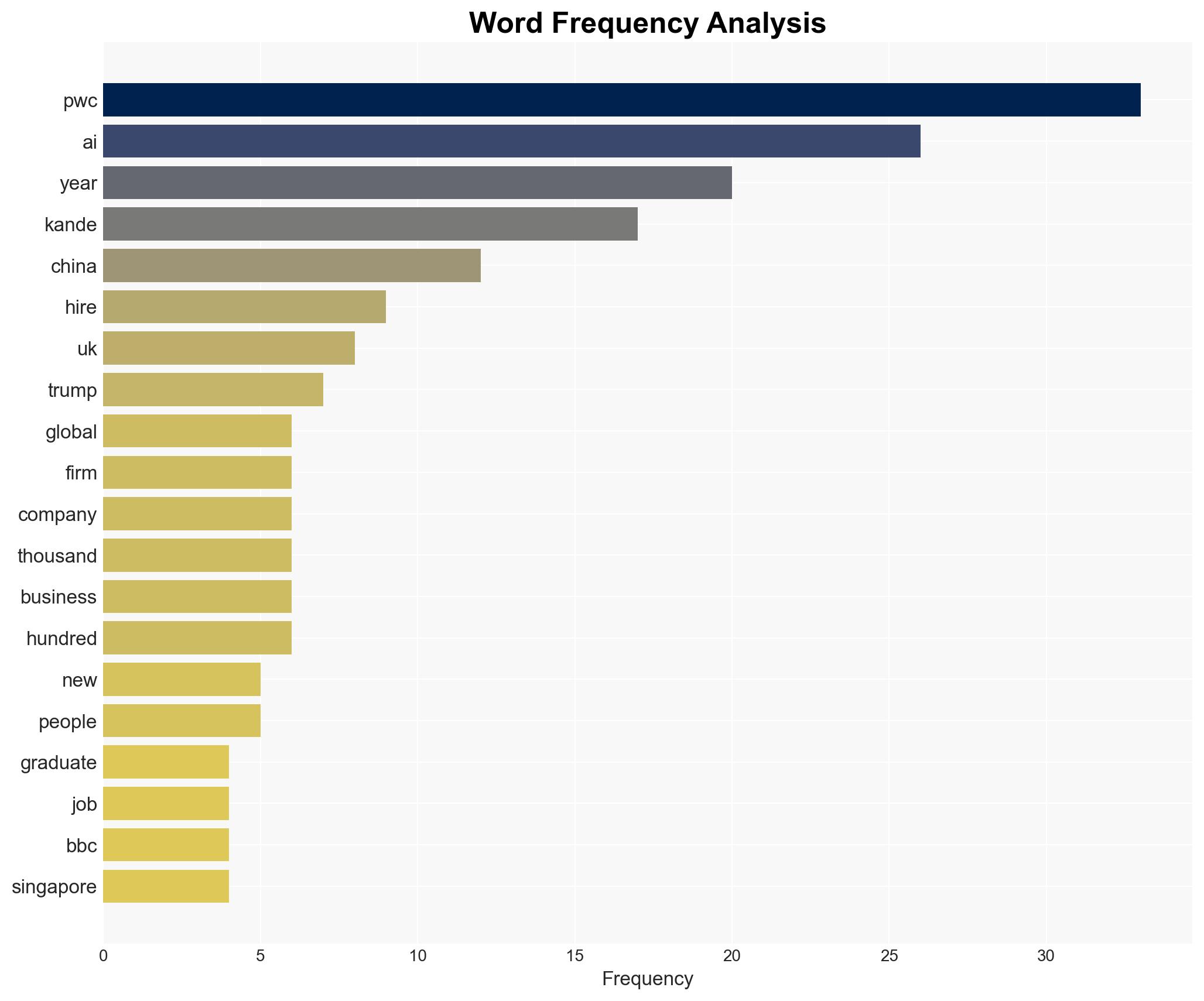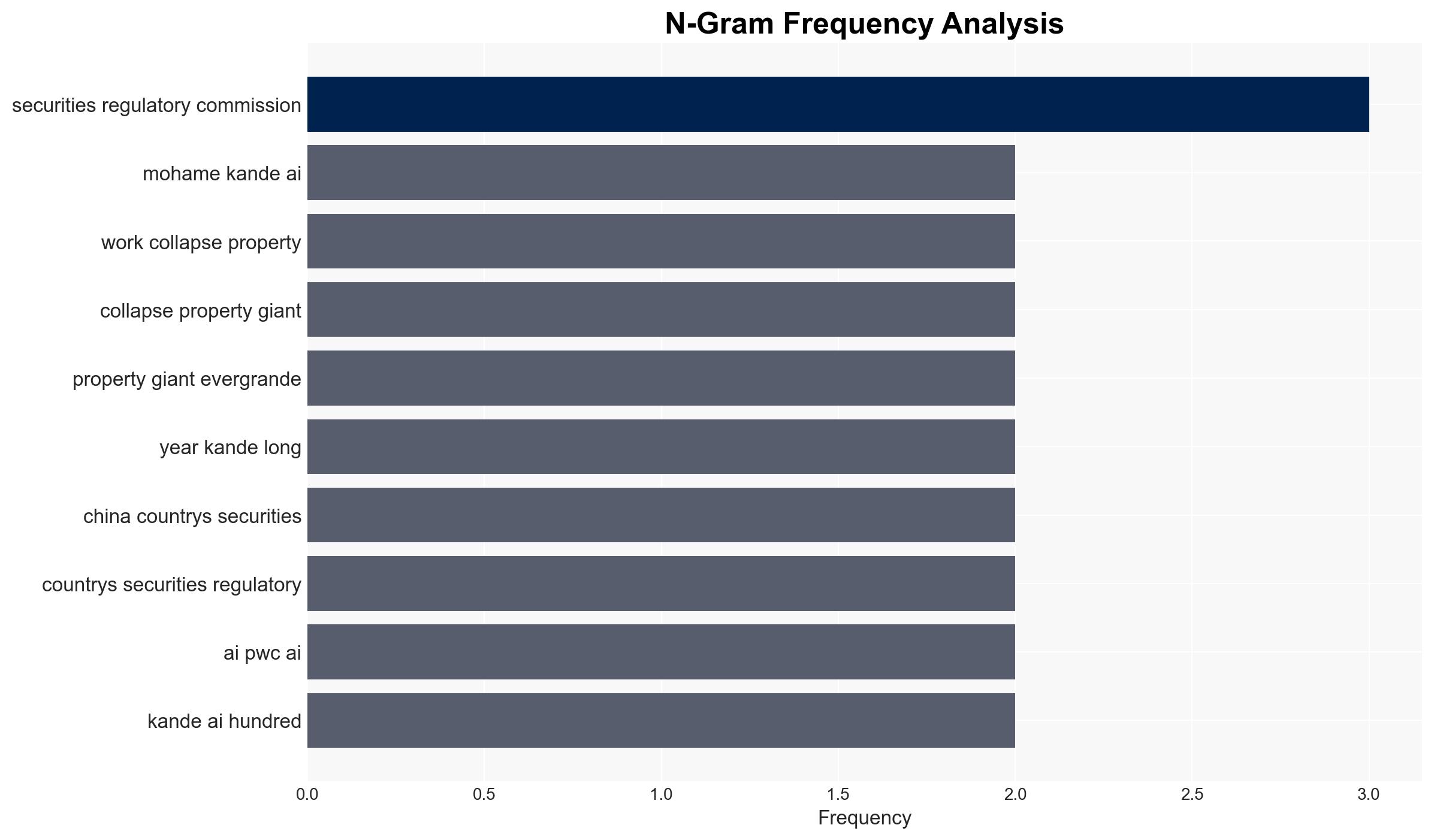Graduate job roles under threat from AI PwC boss says – BBC News
Published on: 2025-11-21
AI-powered OSINT brief from verified open sources. Automated NLP signal extraction with human verification. See our Methodology and Why WorldWideWatchers.
Intelligence Report:
1. BLUF (Bottom Line Up Front)
With a moderate confidence level, it is assessed that the integration of AI into professional services, as highlighted by PwC’s global chairman, will significantly reshape the hiring landscape, particularly for entry-level graduate roles. The most supported hypothesis is that AI will reduce the need for traditional entry-level positions while creating demand for specialized AI roles. Strategic recommendations include upskilling current employees and developing AI-centric educational programs to prepare for this transition.
2. Competing Hypotheses
Hypothesis 1: AI will lead to a reduction in traditional entry-level graduate roles, as automation replaces tasks previously performed by these positions.
Hypothesis 2: AI will create new job opportunities, including roles that focus on AI development, implementation, and oversight, offsetting the reduction in traditional roles.
Hypothesis 1 is more likely given the current trajectory of AI development and its demonstrated ability to perform tasks more efficiently than humans. However, Hypothesis 2 cannot be dismissed, as the demand for AI specialists is rising, indicating a shift rather than a net loss in job opportunities.
3. Key Assumptions and Red Flags
Assumptions: It is assumed that AI technology will continue to advance at its current pace and that organizations will adopt AI solutions to improve efficiency.
Red Flags: Potential bias in the optimistic view of AI’s impact on job creation. There is also a risk of overestimating the speed of AI adoption across industries.
Deception Indicators: Statements from corporate leaders may downplay the negative impact on employment to maintain public and investor confidence.
4. Implications and Strategic Risks
The integration of AI poses several strategic risks, including economic displacement of workers, increased inequality, and potential political backlash. There is also a risk of cyber threats as AI systems become targets for exploitation. Economically, companies may face short-term disruptions as they transition to AI-driven models.
5. Recommendations and Outlook
- Develop training programs to reskill employees for AI-related roles.
- Encourage partnerships between academia and industry to align educational curricula with future job market needs.
- Monitor AI adoption trends to anticipate and mitigate potential job displacement impacts.
- Best-case scenario: AI creates more jobs than it displaces, leading to economic growth and innovation.
- Worst-case scenario: Rapid AI adoption results in significant job losses and social unrest.
- Most-likely scenario: A transitional period where job roles evolve, with a net neutral impact on employment in the medium term.
6. Key Individuals and Entities
Mohamed Kande (PwC Global Chairman)
PwC (PricewaterhouseCoopers)
7. Thematic Tags
Cybersecurity, Economic Transformation, Workforce Development, AI Integration
Structured Analytic Techniques Applied
- Adversarial Threat Simulation: Model and simulate actions of cyber adversaries to anticipate vulnerabilities and improve resilience.
- Indicators Development: Detect and monitor behavioral or technical anomalies across systems for early threat detection.
- Bayesian Scenario Modeling: Quantify uncertainty and predict cyberattack pathways using probabilistic inference.
Explore more:
Cybersecurity Briefs ·
Daily Summary ·
Support us





